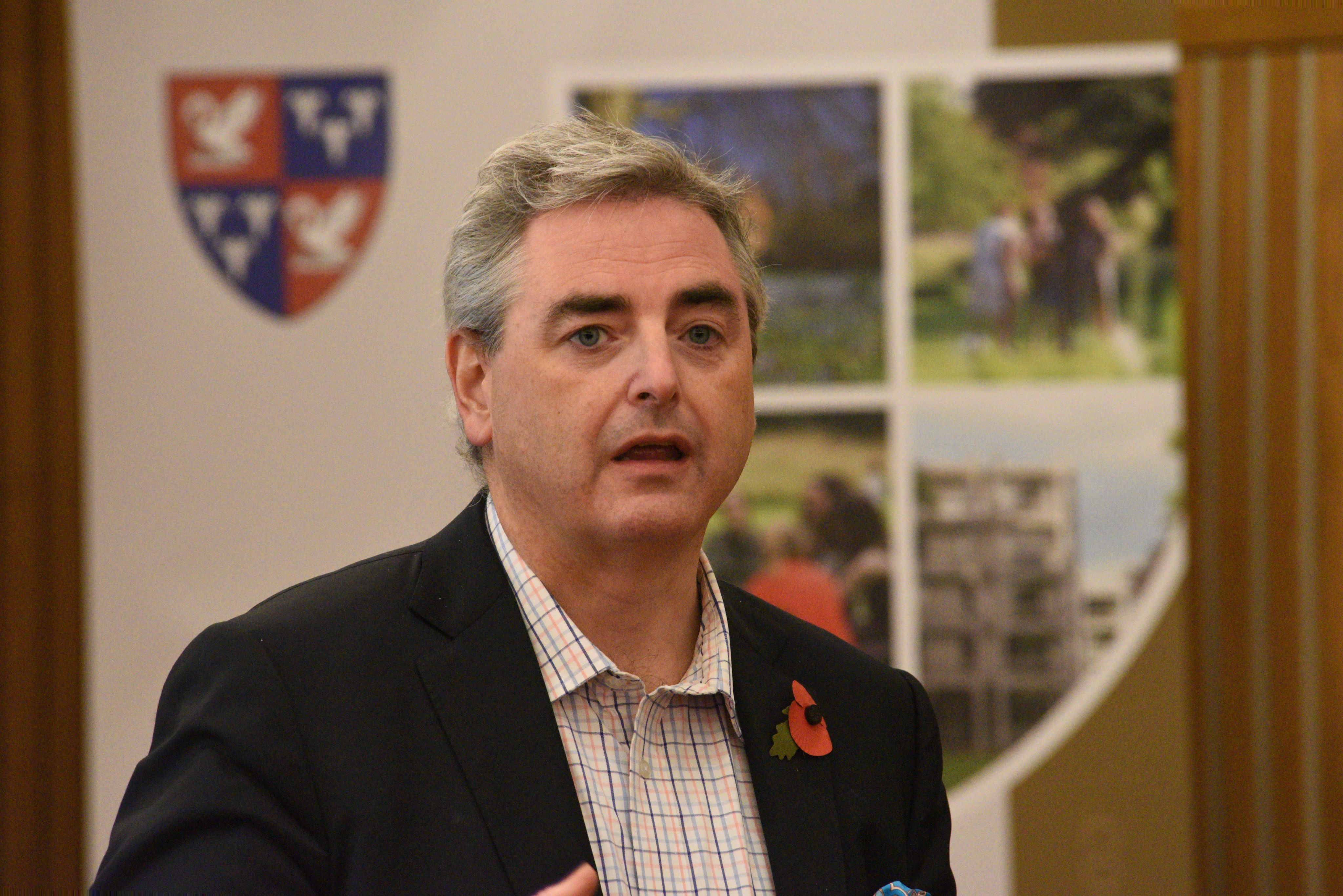The 60th Anniversary Weekend
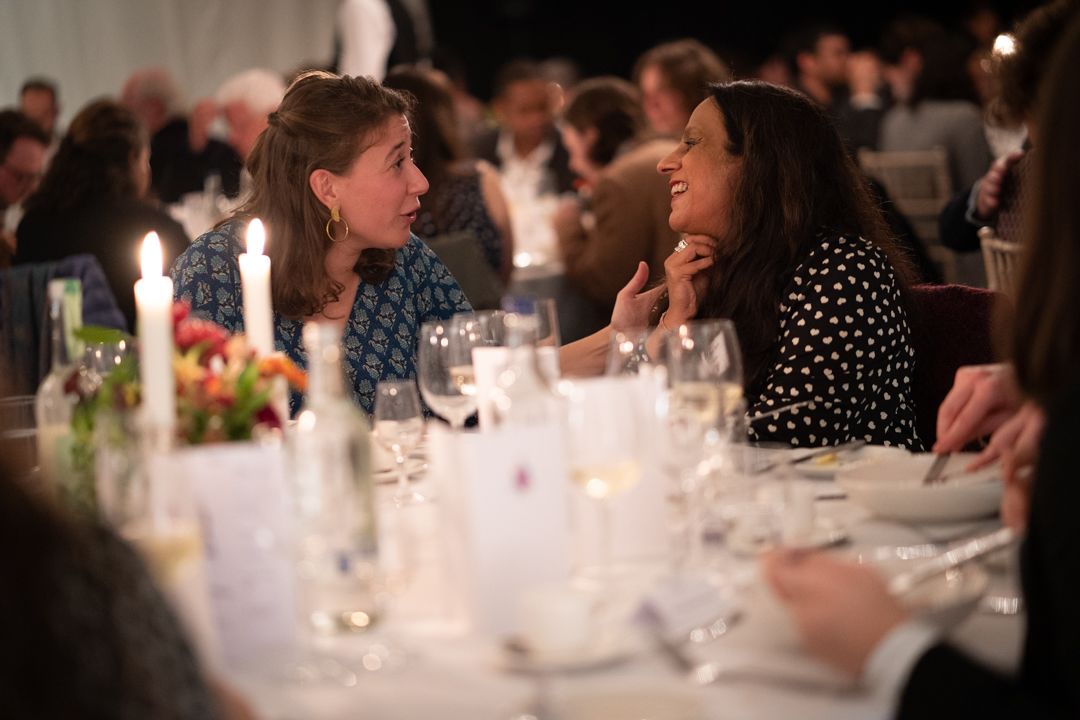
The 60th Anniversary of Leckhampton Weekend in November 2022 was a brilliant opportunity to bring our whole community together to celebrate six decades of rich experiences of Leckhampton life.
In this time, over 2,700 postgraduate students have advanced their studies and enjoyed being part of our postgraduate community. We enjoyed talks, dinners, panel discussions and performances by current and former members, and it was an opportunity for old friends and colleagues to catch up and share their academic successes and life experiences.
We even had a spectacular fireworks display on the crisp autumnal Friday evening followed by drinks in the Leckhampton Bar, bringing back memories for many Old Members of catching up with fellow research students at the end of a long day. Many spoke over the weekend of enduring friendships and professional relationships formed during their Leckhampton days.
At the centre of the weekend’s events, Dr Richard Henderson (m.1966), Leckhampton alumnus and 2017 Nobel Laureate in Chemistry, gave a keynote address in a lecture named for former Master Professor Haroon Ahmed, who was also in attendance. Richard spoke of his memories of Leckhampton and shared some of his own photographs from his time as a PhD student. In his address, Using Electron Microscopy to Understand the Molecules of Life, Richard describes how he began his PhD as an X-ray crystallographer, using the method that had been so successful in helping to understand the structure of DNA. But there were many biological structures – micromolecules - simply too small to view using X-ray crystallography. Richard traced the multiple technological developments that led to the use of electrons as a source of illumination to view these tiny structures. The technique is used today in a wide range of applications included, said Richard, by Corpus Fellow Professor Judy Hirst, who uses cryo-electron microscopy to study the structure of mitochondria.
Additional talks crossed a wide range of disciplines by Corpuscles at various stages of their academic careers. Warden of Leckhampton Professor JD Rhodes discussed the role of film studies, which sits in the Faculty of Modern and Medieval Languages. He was joined by Dr Rhiannon Harris (m.2012), Dr Isabelle McNeill (m.2002), Dillon Mapletoft (m.2012) and Corpus Fellow Professor Emma Wilson (m.1995).
JD also participated in a ‘walk down memory lane’ session with former Leckhampton Wardens Professor Chris Howe (m.1977), Haroon Ahmed and Professor David Ibbetson (m.1973). Haroon’s wife Anne Ahmed also contributed to the conversation. All recalled the wonderful social atmosphere at Leckhampton in the early days, and how quickly it became a community. Fond reminiscences included evenings spent playing Trivial Pursuit (with Haroon becoming an expert), Sunday tea and cake from Fitzbillies, Christmas carols, pantomimes and theatrical perfomances (in which Chris Howe appeared many times, along with Oliver Rackham and former Senior Tutor Richard Bainbridge).
Former Head of the Department of Architecture and Life Fellow of Corpus, Professor Peter Carolin (m.1957), shared Reflections on the Architecture of Leckhampton. Peter has deep knowledge of the buildings at both Old House and Leckhampton, and has written extensively about their history in The Record and in the book The Courts of Corpus Christi (written with Oliver Rackham).
Fittingly, given the subject of Richard Henderson’s Ahmed Lecture, current postgraduates discussed their scientific research in the panel presentation Investigating Life from Molecules to Organisms. The talks revealed the range and depth of scientific research conducted by today’s Leckhampton PhD students. Darius Kosmützky, who was MCR President and is a Gates Cambridge Scholar, works in the lab of Professor Chris Howe studying microalgae, as does Alberto Scarampi, who has a ‘passion for synthetic and systems biology’. Robert Waddell works in Professor Judy Hirst’s group at the MRC Mitochondrial Biology Unit. Emma Siragher is based at the Centre for Trophoblast Research, which studies the placenta and maternal-fetal interactions during pregnancy. Gabrielle McClymont, also a Gates Scholar, studies signalling pathways in the immune system at the Cambridge Immunology Network. Roberta Cacioppo is in the Lindon Group in the Department of Pharmacology. Cristina González López is a PhD candidate in Chemical Engineering working in collaboration with the Department of Oncology on cellular senescence.
Head Gardener Andy Pullin was happy to give tours of the garden as well as participating in a panel on Sustainability and Biodiversity at Leckhampton, along with Fellow Dr Jenny Zhang, and PhD students Katrina van Grouw, George Garnett and Henry North. The gardening team has been making great strides in introducing sustainable practices across the site, encouraged by the Sustainability Committee (see page tk).
Academic paediatric oncologist, Fellow Dr Sam Behjati, who is a Group Leader at the Wellcome Sanger Institute and Consultant Paediatric Oncologist at Addenbrooke’s Hospital, discussed his work on childhood cancer. His research is focused on unravelling the origins of cancer, using a variety of cutting-edge nucleic acid sequencing technologies.
Corpus Fellows Professor Emma Spary, Dr Amar Sohal and Professor Shruti Kapila discussed History in the Global Age, a conversation about current issues in global politics, such as identity, minority rights, nationalism and globalisation.
Fellow Professor Drew Milne, the Judith E Wilson Professor in Poetics in the Faculty of English also gave a presentation called Lichen Beacons: Film and Poetry.
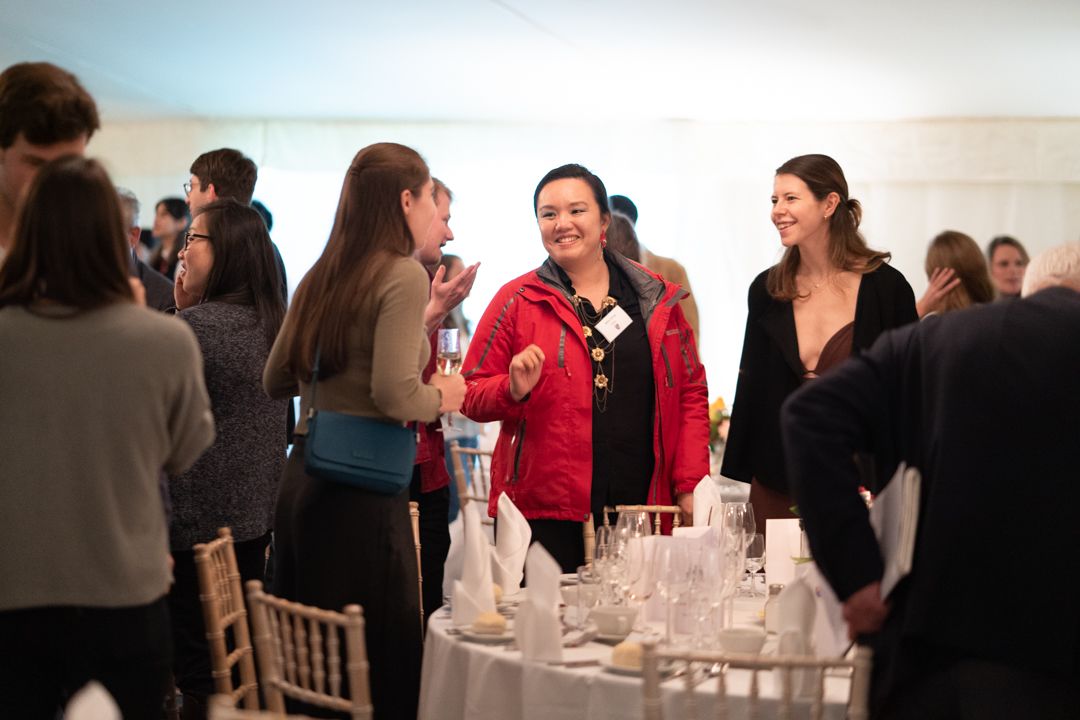
Fellow Dr Betty Chung chats with postgraduate students.
Fellow Dr Betty Chung chats with postgraduate students.
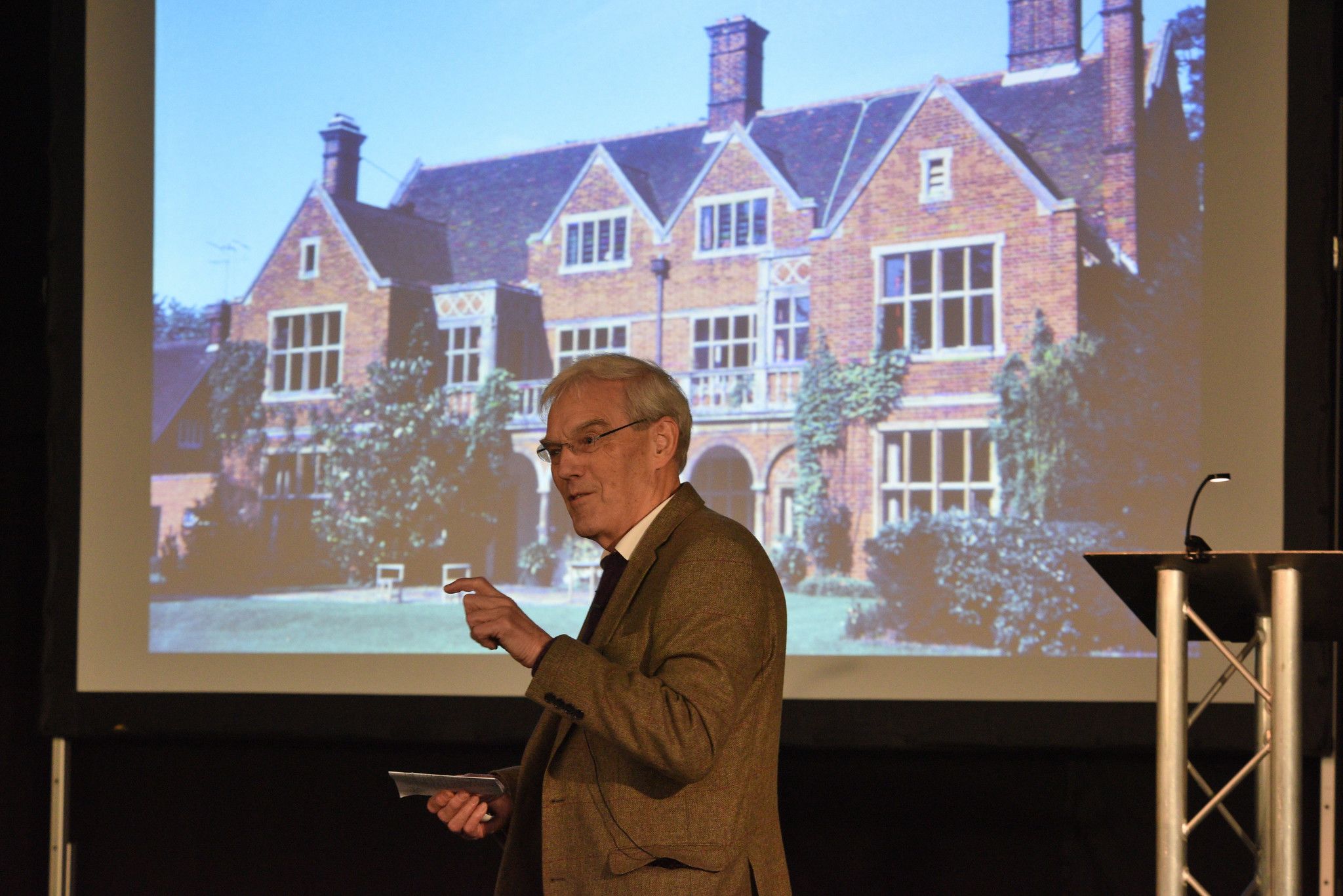
Dr Richard Henderson (m.1966), Leckhampton alumnus and 2017 Nobel Laureate in Chemistry, gave a keynote address in a lecture named for former Master Professor Haroon Ahmed,
Dr Richard Henderson (m.1966), Leckhampton alumnus and 2017 Nobel Laureate in Chemistry, gave a keynote address in a lecture named for former Master Professor Haroon Ahmed,
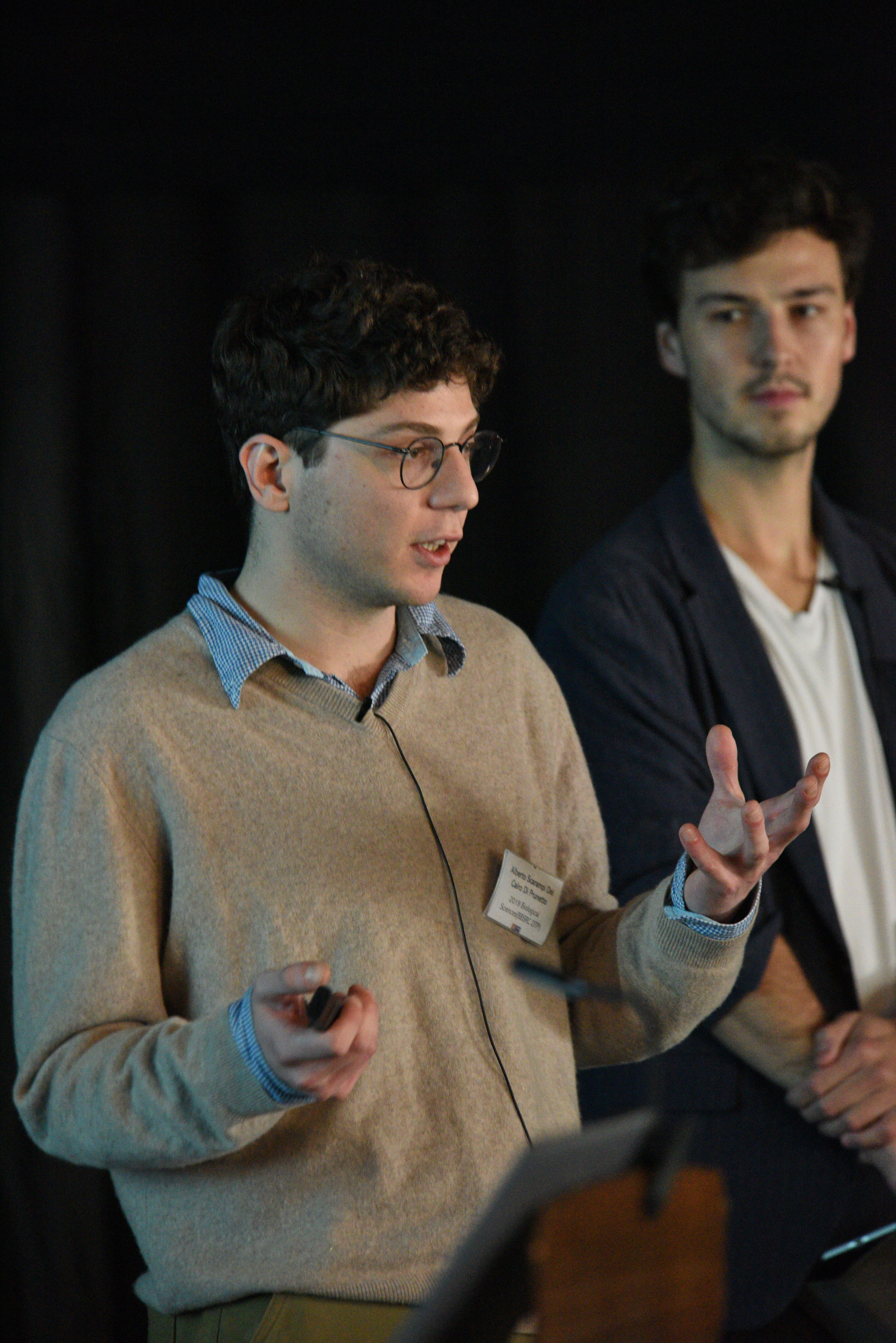
Postgraduate student Alberto Scarampi discussses his research as Darius Kosmützky looks on.
Postgraduate student Alberto Scarampi discussses his research as Darius Kosmützky looks on.
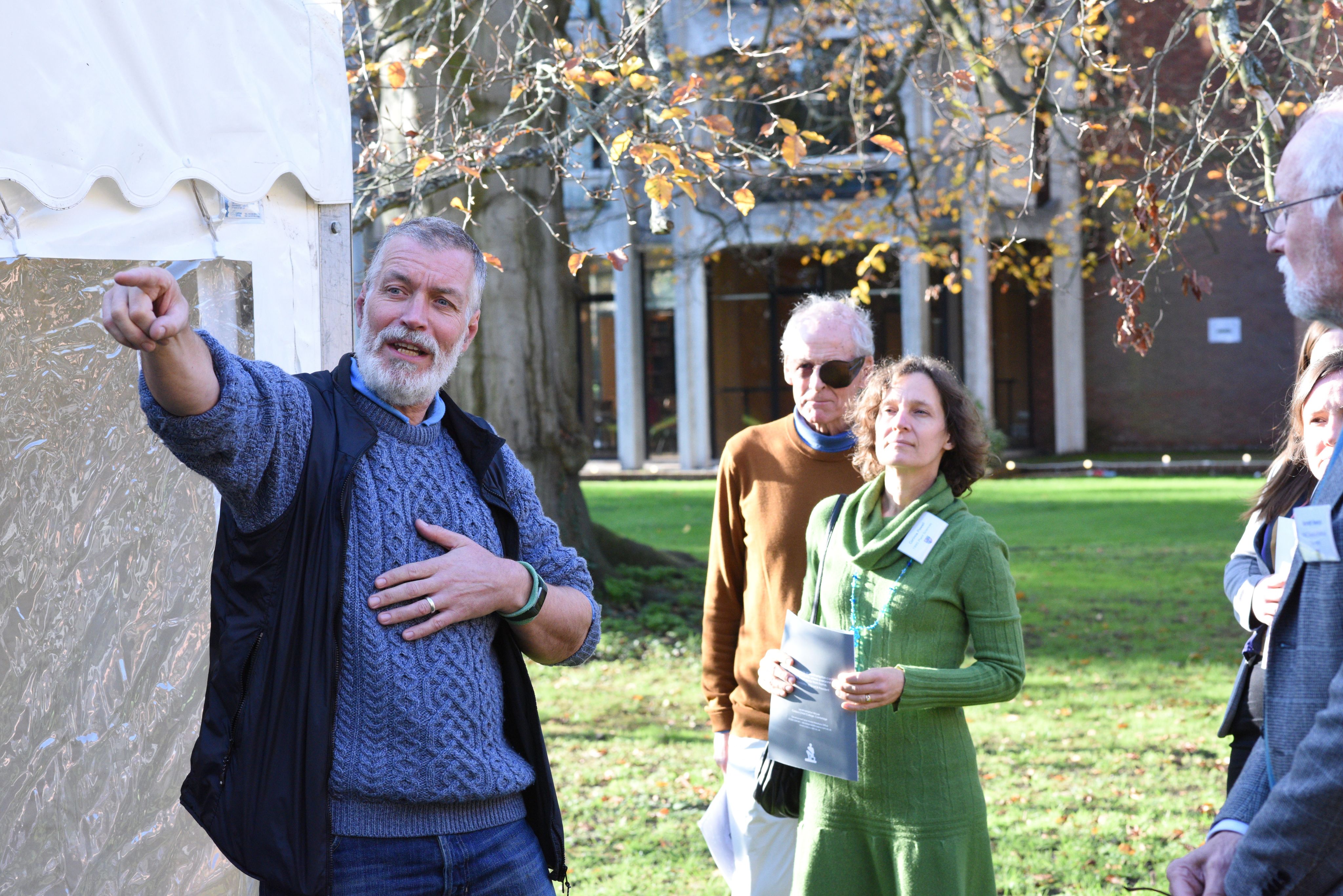
Head Gardener Andy Pullin led tours of the gardens.
Head Gardener Andy Pullin led tours of the gardens.
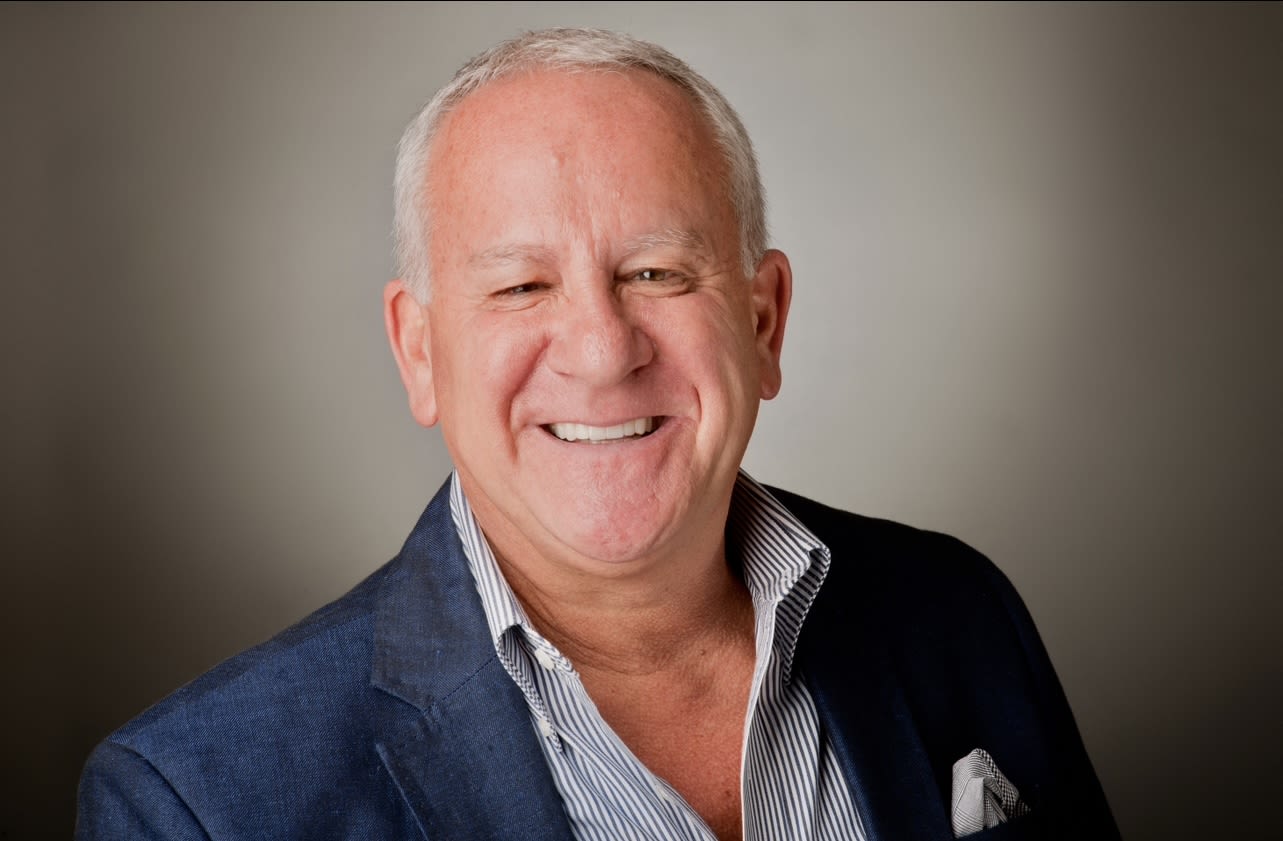
We were delighted that Professor Mark Berlin (m.1979) travelled from Ottawa to join us at the event.
To say that Mark is an international lawyer in human rights barely scratches the surface of his long and varied career across academia, government practice and the non-profit world.
He has been a professor of practice, a policy advisor, government legal counsel, and the author of numerous articles and co-publisher of the book Human Rights in Canada. He is a Trustee of the Canadian Museum for Human Rights and is a member of the Advisory Council for the LGBT ‘Purge’ project to recognise historic human-rights violations of LGBT people in the Canadian military, police and civil service.
Mark grew up in Montreal and came to Corpus after attending Law School in Canada. At the time Corpus was an 'all white, male Christian student body', which he is delighted is no longer the case. Still, his experience here made a deep and lasting impression. Mark credits his time at Leckhampton as having forever changed him. He explains, “During my time at Corpus, what I studied, what I wrote about, and what I started thinking about put me on a career path. Without my degree from Cambridge, my opportunities wouldn’t have been the same. I couldn’t have taught law for 30 years at a university, I don’t think I would have worked for Attorneys General and Ministers of Justice. And certainly, the substance of what I have devoted my life to in terms of human rights and international law all stemmed from my exposure to those subjects at Cambridge. It empowered me to be bold and to want to make a difference in the world.”
At the 60th anniversary event Mark joined Dr Jacob Lundwall and PhD student Nanna Saeten for a wide-ranging conversation that touched on populism in the US and Canada, Mark’s extensive work to help develop strong institutions of statehood in places such as the Middle East, Bangladesh and the Sudan, and the potential outcomes in Ukraine (the conversation can be viewed on the College YouTube channel).
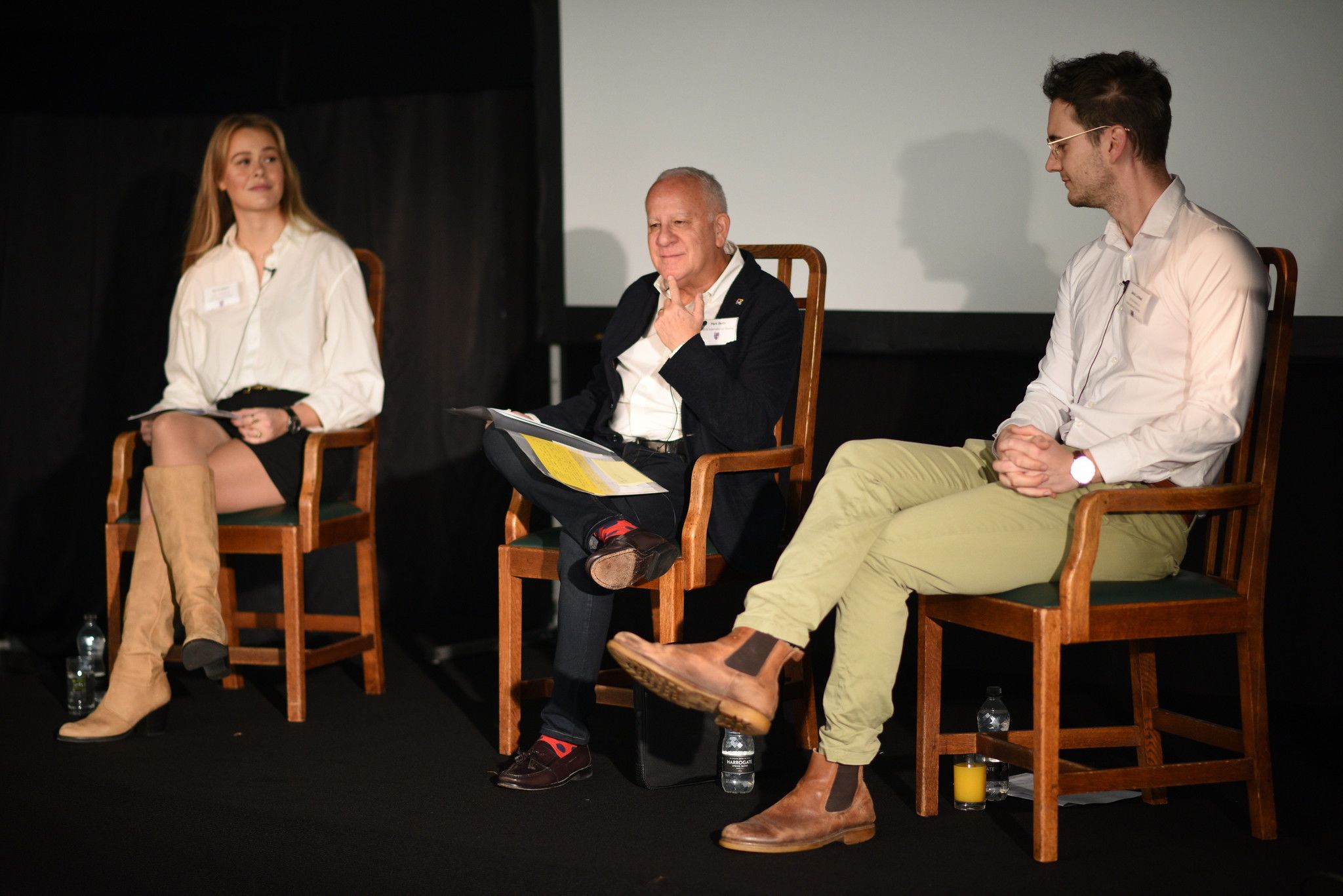
Mark also shared the following advice for today’s Leckhampton resident scholars: “Embrace the splendour and awe that is Corpus Christi and never take for granted the privilege. Enjoy every walk, every pint, punt, every class and let this experience guide you both morally and deliberately as you make your future career and life decisions.
Believe in your own good fortune and make your own luck. Don’t be afraid to make decisive changes as opportunities present themselves. A chance encounter at a Leckhampton breakfast with Professor of International Law, Colin Warbrick, led to a conversation about my academic plans. I became intrigued by his own path in public international law. He went on to become my academic and thesis supervisor and I switched from the LLM to the MPhil, which was much more suited to my talents and interests.
Finally, continue doing what Corpus has in its core DNA and practice kindness. Mentor younger persons who come into your orbit. You have no idea how much of an impact you can have on somebody’s life trajectory and career path decisions.”
We look forward to welcoming Mark back again soon.
Mark has generously pledged a legacy to Corpus and encourages other Old Members to consider also supporting Corpus in this way.
Facing Forward
The event was also a springboard to hold conversations and to consider our provision for Leckhampton’s future generations of students and academics. The Master, along with JD Rhodes, Senior Tutor Marina Frasca-Spada, and Admissions Tutor Dr Michael Sutherland held a final session to discuss Leckhampton as we move forward into the next six decades. How do we continue to attract, fund and support future generations of the brightest minds? The Master's comments are below.
“One thing that we know about institutions is that if they don't change, they decline, that they roll backwards. One thing that we have been celebrating here today has been the extraordinary energy, vision and foresight of the founding of Leckhampton in 1961. One of the interesting, I think, and lasting legacies of Leckhampton is that it did not become a separate graduate college. This is not Corpus’s answer to Clare Hall.
The relationship between our graduate community and our undergraduate community has changed significantly in the last 15 or 20 years, not only because the PhD has now become something which so many more people do as a gateway to research, but perhaps more importantly, because of the creation in the last 15 years of the one-year MPhil in a range of subjects. This has led to a completely different kind of graduate experience. In the same period, the STEM subjects as undergraduate degrees are now four years long, rather than the traditional three years, which remains in humanities. So that there's been a blurring of the once more rigid boundaries between the undergraduate experience and the graduate PhD experience.
Perhaps the flagship initiative of the years before COVID was a concentration on the Bridging Course, an initiative that expanded our undergraduate intake by 10 to 15%, with a particular concentration on those from underrepresented and disadvantaged, educational and social backgrounds. Last year we had one of our best years in top examination results, so the Bridging Course project has worked extraordinarily well and it has led to a significant transformation of our student body. And now we need to think about how we extend something of that commitment to widening participation, to our graduate community. The other strand that we are thinking about is that we also need to work out a built environment, both at Leckhampton and at Old House that would reflect some of those transformative social and intellectual ambitions. We've commissioned a Masterplan, which embraces the whole site, because I think it's important that when we talk about the College, we think equally of the Old House, and Leckhampton, but that we think how the architecture of both of these places can express some of the fundamental and different strengths of those two complementary communities.”
